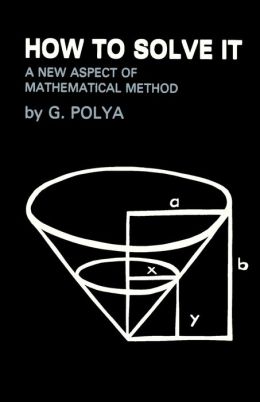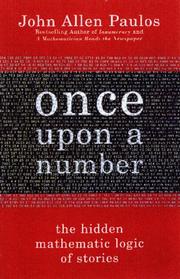It's coming on the year anniversary of Philadelphia Math Counts Meetup, but that's not important. What is important is in twelve months, I've had to read six books on math. A couple were really good, they taught me something about math and a few worked to show the reader something about math culture. Some, not as good. Thinking about these books and others suggested to me that I was able got me thinking: I should throw together a list of five of the math books I like. It would be nice to make this an annual thing, since there's a book this month that I'm still reading and we have 3 more books lined up for the next 6 months. Looks like a year of books. Here it is, 5 great books on mathematics.
- Symmetry and the Monster - Mark Ronan:
- I've mentioned this before in a monster post, but I only attempted to describe the
monster. The task of describing the monster is no easy feat. In fact, this is not the only book I own on the subject of symmetry. Like all the books we've read, this is not for people who have studied symmetry and group theory. Unlike other books I've done on symmetry, it tries to treat the reader as intelligent and having more than a passing knowledge in math. At this point in finding books to read on math, you just don't how much of a relief that is. A math book that assumes you understand math! Crazy, I know. Ronan chooses to more focus on the stories involved on the lead up to modern era, telling the history of each of the characters. Math has certainly had many interesting characters, from Galois dying in a gun duel at 21 to Lie hiking across Europe and being arrested as a spy. Check this out if you're interested in catching a glimpse of math culture and you are aware of the fact geometry exists.
- How to Solve It- George Polya:
- This book has made me a fan of Heuristics. People in my day to day life think I'm
good at math since I keep this blog and help run that group, and they ask me for suggestions on ways to get better. First of all, I am not that good at math. I failed pre-calc in high school. I just read a lot of books, websites, and watch videos about math. This book though, man. Heuristics needs to be taught alongside basic arithmetic. What heuristics is the science of problem solving. This book only focuses on basic geometry problems, but it outlines the basic steps on how to solve problems with an unknown answer. Memorizing tricks and things to solve problems with a known answer is fine, but progress always seems to be made by the people who tackle problems that may not even have an answer to begin with. The problem with the book is Polya was the first to outline this idea, so there are steps that people say are missing or other steps that redundant. I've seen most of the steps outlined here in other parts of my life where people taught the steps to solve problems, but I took away two good ones from this book: Have you seen the problem before, and can you use that answer to solve a new problem? And look back on the problem and meditate on it. It's a basic thought that comes from the idea that you should prove your work, but he extends further into the idea that an answer may have more than one solution that you can miss. Really, the ability to solve problems is a function of math that can be used in our day to day lives.
- Chance and Chaos - David Ruelle:

- We read Chaos by James Gleick for the group. It's not a bad book, it's just not written for people who want to do math. It helps the reader acknowledge that a field of non-linear dynamics exists, and presents the mathematicians who worked on it. This book was suggested to me by someone who skipped that meeting, so I picked it up for a couple bucks. First of all, Ruelle was one of the physicists that pioneered work on this field. And like Symmetry, he attempts to show the math to a non-mathematician. He explains randomness and chance. He shows the reader equations. He makes an effort to actually teach the reader something. And he does it with a strange french sense of humor. The whole time he interjects stories of his own while he was working with some of the other players in this field. Good book on chaos, and some other math as well.
- Once upon a Number - John Allen Paulos:
- A book chosen for two reasons. First of all, it was written by local Temple math
professor John Allen Paulos. And it gives a great perspective on stories. Going into this, a few of thought it was on actual logic and set theory of stories, but instead it broadens it's scope to the statistics of stories. It looks at a lot of different news stories and books and focuses on the numbers used. It looks at things like why stats may be wrong or just misleading. And it uses a lot of word problems. It does walk through the logic of those problems. This book was the first book we read this year that attempted to show a simple mathematical model. It's not as deep and well-built as ones I encountered later, but it helped me begin to read and understand the later ones. Since reading this, I focus heavily on the math and stats people use in news. This book is on openlibrary, by the way, and the pdf can be read for free.
- Godel, Esher, Bach - Douglas Hofsteader:

- If you read math books, then you knew it was going to be here. Some people love it, some people hate for being another book that dumbs down simple ideas for the masses. I think education is for everyone, and people need to start somewhere. And what a hell of a place to start. He recreates basic mathematics by assigning rules to odd symbols. There are pictures by M.C. Escher, my longtime favorite artist. He retells stories by Lewis Carrol! It's a book on logic, really, and the rules that make math. There is history, but he just walks you through each part of math while trying to explain Godel's incompleteness theorem, which is a heavy task. But along the way math is connected to stories, art, and music. What turned me off of math years ago is the fact that higher math didn't seem to connect with the real world. This book holds a special place in my library because it showed me how math can apply anywhere.
So go out and read about math. You don't need a crazy education in it to understand or even do it. Like all things, you just need to be interested in.





No comments:
Post a Comment